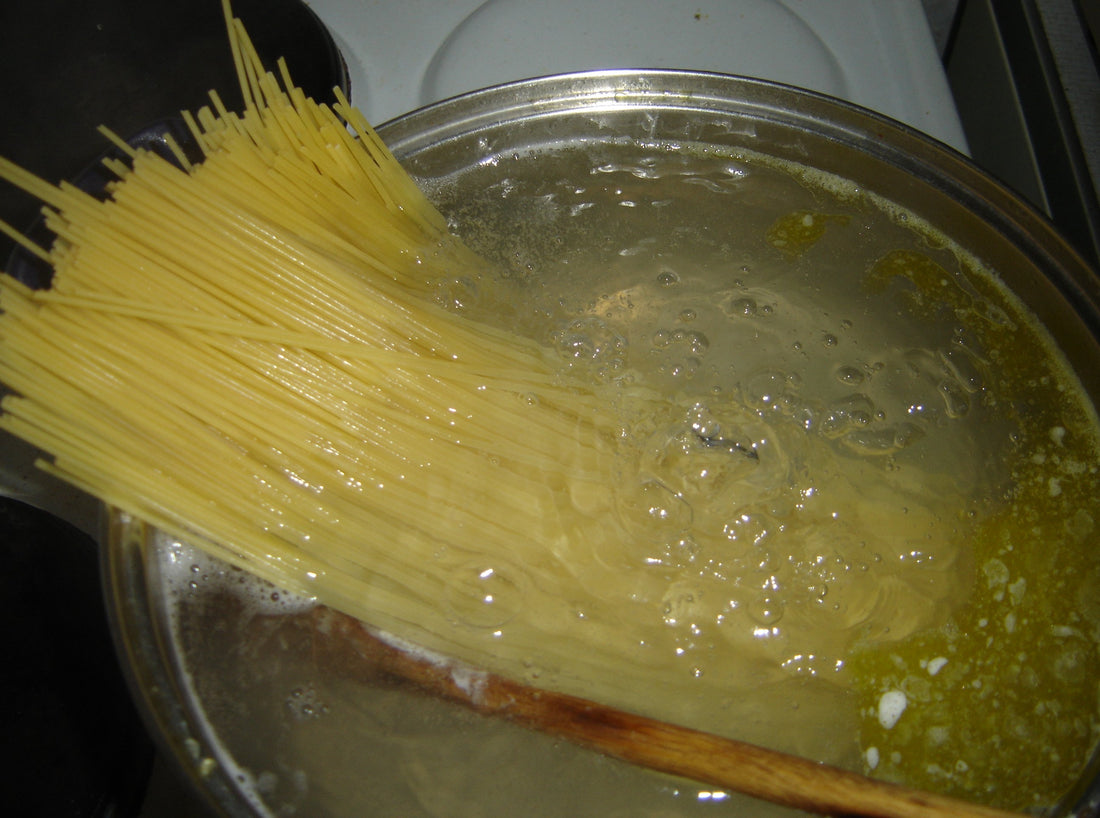
You Are What You Eat: Keep Your Drinking Water and Food Contaminant-free
By Dan DeBaunShare
Public water systems undertake various measures in order to deliver safe and potable drinking water to households. These include chemical treatment and filtering processes to eradicate a variety of water contaminants. However, not only do some pollutants survive the treatment process, but during the water cleansing operation, chemical additives may add other contaminants to the water, which can be harmful to our health. If your household water supply originates from a well, borehole, or natural spring, there is a good chance that it may be contaminated with environmental pollutants that can enter the water source by leaching or with water runoff. Many private water sources do not undertake regular testing of the water quality, and therefore filtration with a high quality water filter is recommended to be sure that your water is safe to drink. Your water will not only be healthier, it will be clearer, fresher, tastier, and generally far more appetizing to drink.
Choosing a Water Filter
There are several types of water filters available on the market, which can be confusing. We recommend a good quality home water filter that is able to remove a wide range of potential toxins (chlorine, chloramines, bacteria, pharmaceuticals, etc) in a variety of situations (for example for daily use at home, on holiday, and in emergencies), and which has an adequate capacity to supply the daily needs of your family.
Effects of Water Contaminants to Children’s Health
Children have weaker immune systems compared to adults, as they are still developing. This makes them more vulnerable to common pollutants in water, such as chlorine, heavy metals and other chemicals that can pose health risks, which can include increased risk of cancer, learning difficulties, and gastrointestinal upsets. Drinking water with high levels of lead is known to negatively effect brain development in children, while nitrates present in unfiltered water can pose a severe health risk to your children by limiting oxygen absorption that can cause blue baby syndrome. Keep your children safe from these toxins by removing water contaminants through proper filtration of all water that is used for cooking, drinking, food preparation, or for mixing baby formula.
Using Filtered Water for Preparing and Cooking Meals
Since water is also used when preparing food, it is important to use clean, uncontaminated water when cooking or washing fruits and vegetables. Some foods, such as dried beans and lentils, also need to be soaked in water during their preparation before they are used in dishes like pasta and casseroles. Since they are rich in protein, legumes are widely used as a healthy substitute for meat by many vegetarians. Without a clean and safe supply of water to prepare our food, there is a good chance that good healthy foods may become contaminated while preparing meals.
Boiling water kills most bacteria, but not all. Some bacteria present in water can withstand extreme temperatures and may survive to contaminate food boiled in the water, especially when not boiled for very long. Other water contaminants, such as heavy metals, industrial chemicals, and other toxic chemicals, cannot be removed by boiling. This must be taken into consideration especially for meals that are made up largely of water, for example soup. Some dishes absorb water while they cook, for example pasta and rice, and will absorb any pollutants present in the water as well.
As we all want our food to taste as natural and wholesome as possible rather than of chlorine or other chemicals. Using a water filter in the kitchen will ensure that you are providing your family with only the healthiest, great tasting cuisine. Always bear in mind that you are what you eat (and drink).
-
Regular price $234.00 USDRegular priceUnit price / per
-
Regular price $327.00 USDRegular priceUnit price / per
-
Regular price From $367.00 USDRegular priceUnit price / per
-
Regular price From $408.00 USDRegular priceUnit price / per
-
Regular price From $451.00 USDRegular priceUnit price / per
-
Regular price From $478.00 USDRegular priceUnit price / per
-
Regular price $332.50 USDRegular priceUnit price / per
$350.00 USDSale price $332.50 USDSale

Dan DeBaun
Dan DeBaun is the owner and operator of Big Berkey Water Filters. Prior to Berkey, Dan was an asset manager for a major telecommunications company. He graduated from Rutgers with an undergraduate degree in industrial engineering, followed by an MBA in finance from Rutgers as well. Dan enjoys biohacking, exercising, meditation, beach life, and spending time with family and friends.
~ The Owner of Big Berkey Water Filters
















